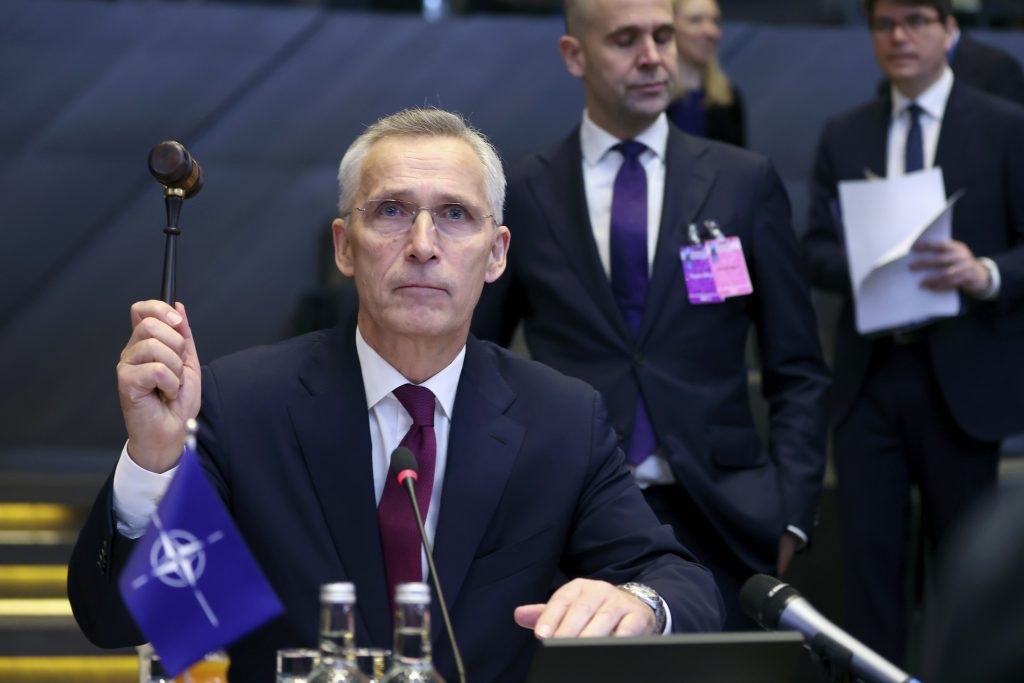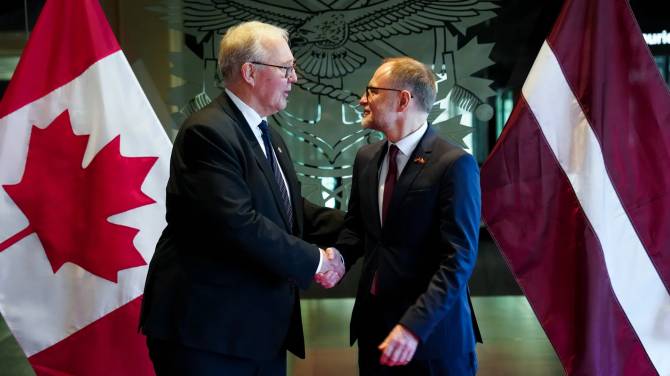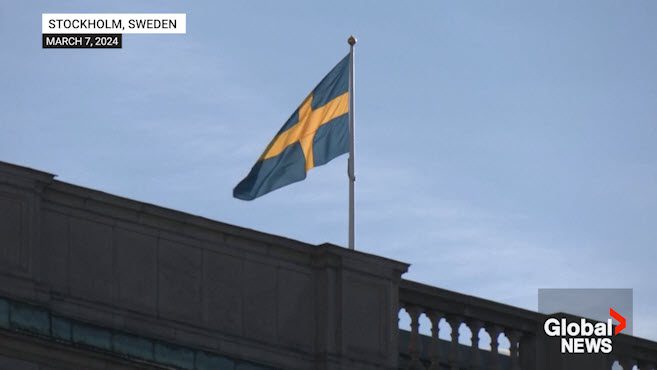NATO The alliance's foreign ministers celebrated the 75th anniversary with flags, cake, and marching bands, while the secretary general reminded the United States that it needed its allies more than ever as the Ukraine war enters its third year.
The 32 member states of the alliance agreed on Wednesday to start planning for a greater role in coordinating military assistance to Ukraine to help it fight Russia in Europe’s biggest conflict since World War Two, and to show unity as Ukraine waits for a stalled $60 billion aid package in the U.S. Congress.
During a meeting in Brussels, the ministers commemorated the signing in Washington on April 4, 1949, of the North Atlantic Treaty that established the transatlantic political and military alliance.
“Europe needs North America for its security,” Stoltenberg stated at a ceremony at NATO’s headquarters in Brussels.
“At the same time, North America also needs Europe. European allies offer top-notch armies, extensive intelligence networks, and unique diplomatic influence, enhancing America’s strength.”
European leaders, who make up most of NATO members, are concerned not only about NATO's future if former U.S. President Donald Trump defeats current President Joe Biden in November, but also about the ongoing delay in the Ukraine aid package in Congress, as Republicans demand border security measures in exchange for passing the bill.
NATO was established with 12 members from North America and Europe in response to increasing concerns about the Soviet Union posing a military threat to European democracies.
At its core is the concept of collective defense, the idea that an attack on one member is considered an attack on all, providing U.S. military protection to Western Europe.
Seventy-five years later, it has 32 members and has regained a central role in world affairs after Russia invaded Ukraine in February 2022, causing European governments to once again see Moscow as a major security threat.
NATO’s two newest members, Finland and Sweden, joined in direct response to Russia’s invasion of Ukraine.
“Democratic nations and free people chose to join (NATO) unlike how Russia expands through annexation or illegal aggression,” Finnish Foreign Minister Elina Valtonen said.
Russia stated on Wednesday that NATO had returned to a Cold War mindset. Foreign Ministry spokeswoman Maria Zakharova told reporters that NATO had no place in the “multipolar world” Moscow says it seeks to build to end U.S. dominance.
“NATO’s biggest battles to fight are still in the future, and we have to be ready for them,” said Lithuanian Foreign Minister Gabrielius Landsbergis.
LONG-TERM PLAN FOR UKRAINE HELP
NATO ministers agreed on Wednesday to start planning for a greater NATO role in coordinating security assistance and training for Ukraine.
Under a proposal by Stoltenberg, NATO would take over work done by a U.S.-led ad-hoc coalition known as the Ramstein group, in part to guard against any cut in U.S. support if Donald Trump returns to the White House, diplomats said.
Stoltenberg also suggested a fund of 100 billion euros (around $108 billion) to help Ukraine’s military over the course of five years, as reported by diplomats.
The ministers are also set to meet with Ukrainian Foreign Minister Dmytro Kuleba on Thursday. Kuleba told Reuters that he would urge them to provide more Patriot air defense systems to defend against frequent Russian ballistic missile attacks.
“I don’t want to ruin today's celebration, but my main message today will be about Patriots,” Kuleba said while standing next to Stoltenberg.





